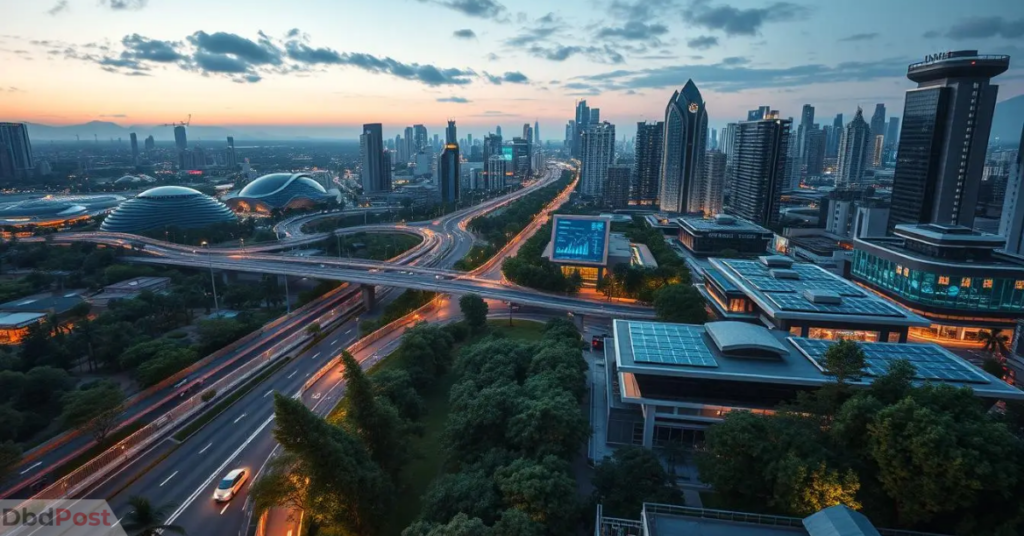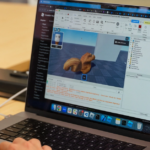Urbanization continues to reshape the world. According to UN-Habitat, by the year 2050, almost 70% of the world’s population is expected to reside in urban areas.
This rapid growth brings opportunities and challenges for urban governments, communities, and economies.
As cities expand, they face mounting pressures. Climate change, resource strain, and public health crises demand innovative solutions. Fortunately, advanced technologies offer tools to address these challenges and create resilient urban environments.
IBM is at the forefront of this movement. The tech giant recently launched five AI-powered projects as part of its Sustainability Accelerator program.
These initiatives aim to build safer, more equitable, and more sustainable cities worldwide.
The projects stem from IBM’s 2024 Request for Proposals (RFP), which called for innovative ideas aligned with sustainable goals. This goal emphasizes inclusive, safe, and sustainable urban development.
Out of over 100 applications, IBM selected five organizations to collaborate on solutions addressing significant urban challenges.
Each selected organization brings a unique focus to the program. These projects span various issues, from tackling extreme heat risks to improving urban governance.
Together, they demonstrate AI’s transformative power in shaping cities’ future.
One standout collaboration is with C40 Cities. This global network, consisting of nearly 100 city mayors, is dedicated to addressing climate change.
IBM and C40 Cities are developing an AI tool to analyze risks associated with extreme heat and urban heat islands.
Heat waves pose serious threats to urban populations. They stress energy grids, increase health risks, and exacerbate socioeconomic inequalities. The AI tool aims to help cities predict these risks and develop adaptive strategies.
By reducing heat-related health crises, cities can better protect vulnerable populations and strengthen resilience efforts.
IBM is partnering with the UN World Food Programme (WFP) in a separate project. This organization, the largest humanitarian group addressing global hunger, will enhance its GeoTar geospatial tool with AI capabilities.
GeoTar creates vulnerability maps that guide WFP’s operations during natural disasters like droughts and floods.
AI upgrades will enable GeoTar to provide deeper insights into food security risks. It will help WFP teams prioritize resources and make faster decisions.
These improvements mean life-saving assistance is delivered more efficiently for communities affected by environmental disasters.
Healthcare systems are also benefitting from AI innovation. IBM has teamed up with Mass General Brigham, a nonprofit healthcare system, to address extreme heat events.
Together, they are developing an AI-powered tool to predict hyperlocal heat waves and identify at-risk patients.
Extreme heat often leads to increased hospitalizations. The new tool will issue automated warnings to clinicians, enabling preventative interventions. For patients, this means timely access to resources and reduced risk of heat-related illnesses.
Initial tests for the solution will take place across Mass General Brigham hospitals.
In India, IBM is focusing on urban governance. The company is working with the Janaagraha Centre for Citizenship and Democracy to create a city data and analytics platform.
This platform will consolidate urban data to improve decision-making at the local government level.
Governments often struggle with fragmented data systems. This platform will help officials identify issues and implement targeted interventions by standardizing and spatializing data.
The goal is to improve urban services, such as sanitation and transportation while promoting sustainable development.
Another noteworthy partnership is with Kota Kita, an Indonesian nonprofit. IBM and Kota Kita are developing AI models to address climate stress in Samarinda.
These models will analyze vulnerabilities caused by natural disasters, demographic growth, and limited access to clean water.
The insights generated by these models will guide resilience-building projects. New initiatives designed to reduce vulnerabilities and enhance quality of life will benefit local communities.
These efforts could be transformative for a city like Samarinda, where climate challenges are severe.
All projects in the IBM Sustainability Accelerator follow a two-phase approach. The first phase, IBM Garage, focuses on rapid digital transformation and measurable outcomes.
During the second phase, IBM experts refine and implement technologies tailored to each organization’s needs.
Beyond technical collaboration, IBM also offers capacity-building support. EY teams will provide workshops and coaching to help participants strengthen their organizational capabilities.
This holistic approach ensures that each project delivers a long-term, meaningful impact.
IBM’s commitment to social innovation extends far beyond these five projects. Since the launch of the Sustainability Accelerator, the company has invested $45 million in initiatives that support vulnerable populations.
The program has benefitted over 65,000 individuals through sustainable agriculture projects and is projected to impact 1.1 million more through clean energy solutions.
These urban-focused projects are expected to impact thousands of citizens worldwide positively. By harnessing AI, IBM aims to address some of the most pressing challenges cities face today.
The results could redefine how urban areas adapt to climate change, manage resources, and improve living conditions.
Urbanization is not slowing down. However, cities can turn challenges into opportunities with the right tools and partnerships.
For organizations interested in joining this effort, IBM has announced a new RFP focused on AI for Sustainable Consumption and Production. Applications are open until April 30, 2025, offering a chance to contribute to a growing movement for social impact.
Through these initiatives, IBM highlights AI’s transformative potential. The company is helping create a future where people and cities thrive together by addressing critical urban issues.
With continued innovation, the possibilities for urban resilience are limitless.
- 107shares
- Facebook Messenger
About the author
Christopher Brooks is a computer and information researcher with a passion for advancing digital technologies. He holds a Master's Degree in Computer Science from MIT and has been applying his knowledge to further the fields of cyber security, consumer electronics, artificial intelligence, data science, and more. In his free time, Christopher enjoys biking and hiking.





